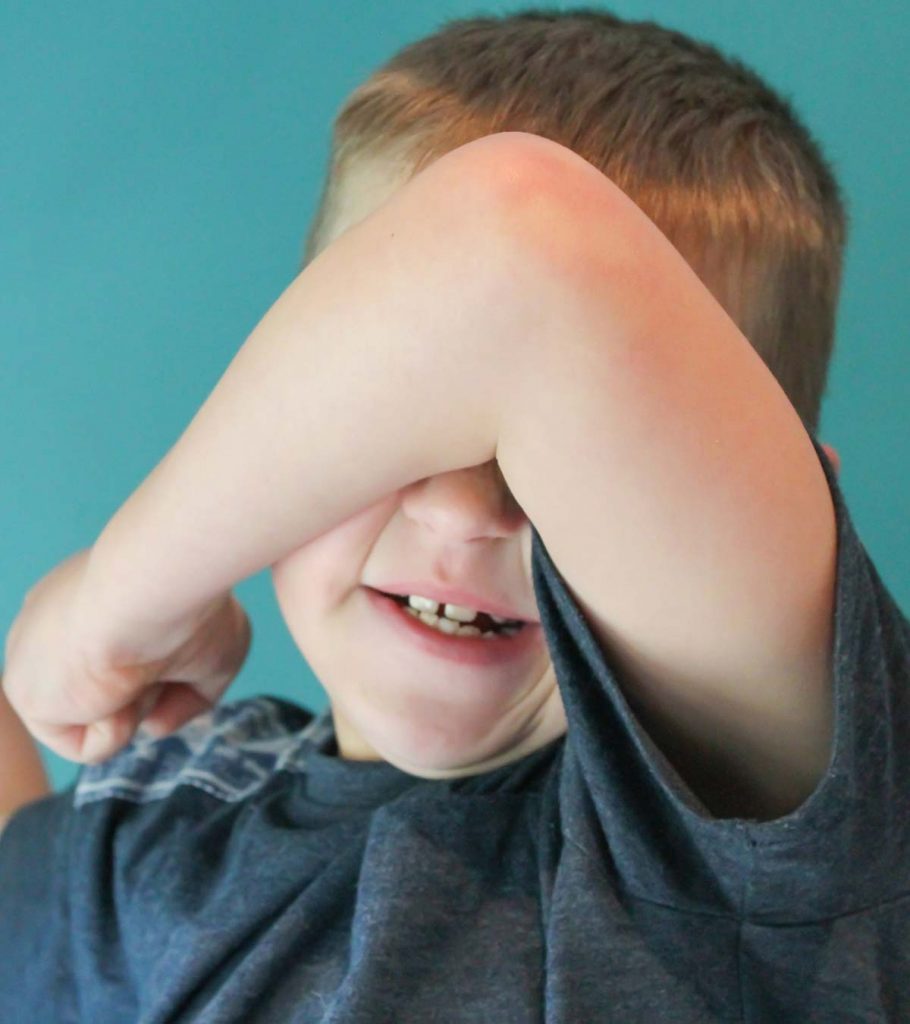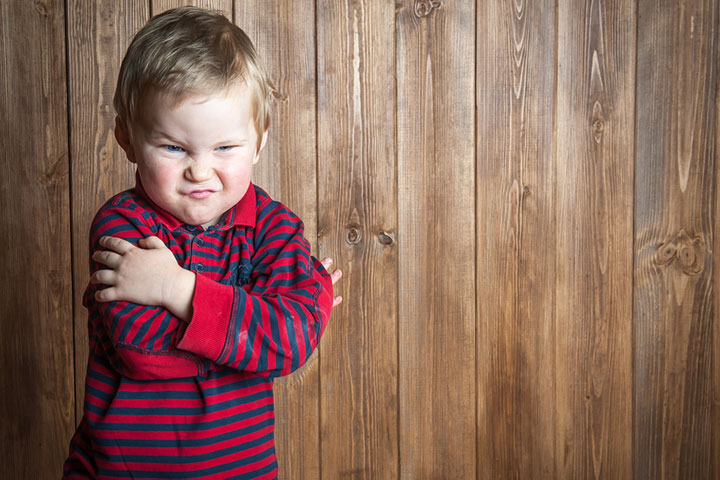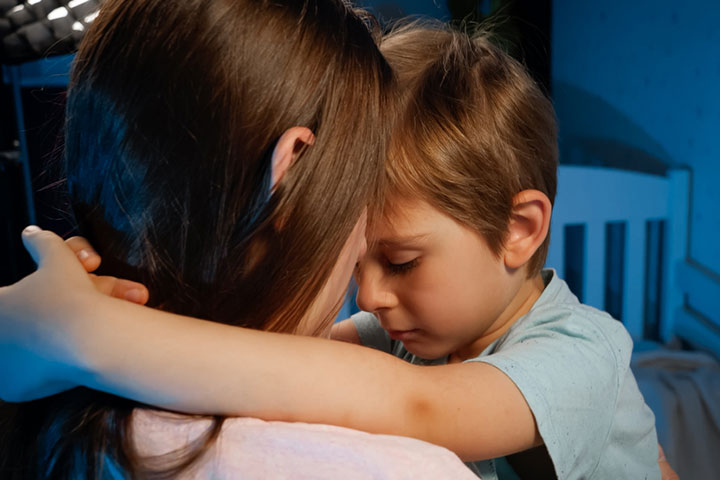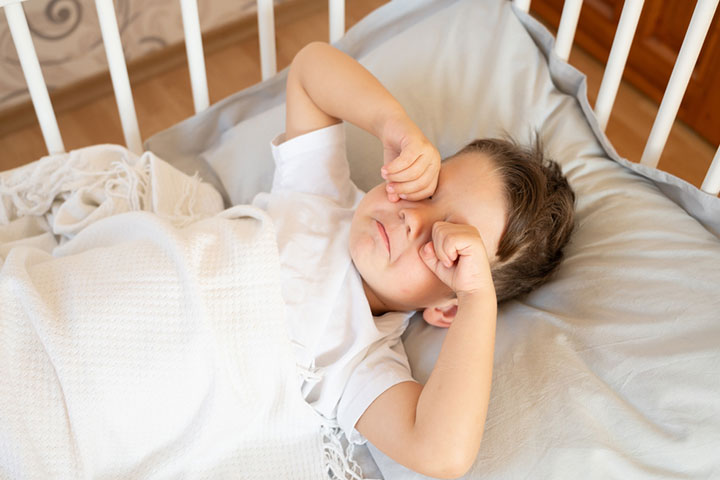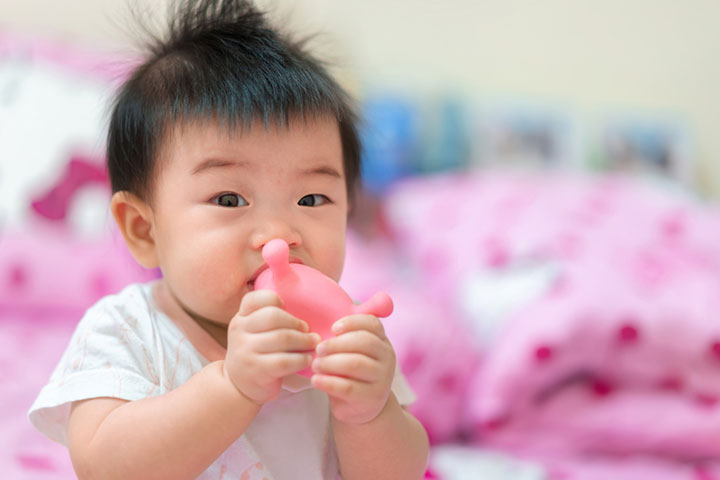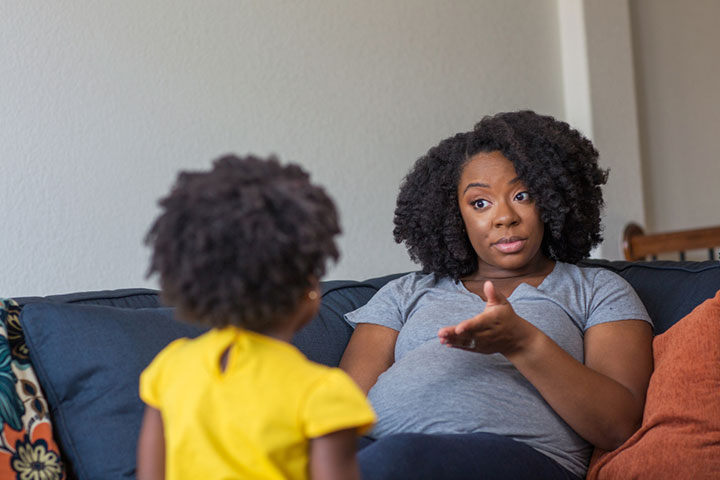One of the behaviors that send a parent down a panic lane is when they observe their toddlers hitting themselves and banging their heads, inflicting self-injures. But why do toddlers hit themselves?
As scary as it may seem, this type of behavior is a part of their developmental phase; take it as a way your child expresses their emotions. Mostly, you may notice that your toddler attempts such acts when they are angry or in need of attention. According to Maria Pistorio, LPC, NCC, PCIT, a Philadelphia-based therapist specializing in EMDR, CBT therapy, and parent-child interaction therapy, “The behavior could mirror the way she/he is feeling inside. But toddlers are too limited in vocabulary to explain feeling overwhelmed, angry, or lonely.”
This child behavior is termed self-injurious behavior (SIB). A few studies have indicated that 15% of young children exhibit SIB during their early years (1).
But sometimes, persistent and chronic SIB may lead to developmental delays. Read on to know more about SIB, its causes, and when it must be reported to a physician.
Why Does A Toddler Hit Themselves?
During toddlerhood, your child will be aware of their surroundings and start exploring the world around them. They will also learn to communicate their wants and needs. However, they might not have the full capabilities to achieve everything or verbally communicate their desires.
Such limitations combined with the challenges in understanding the world may cause anger and frustration, resulting in hitting themselves. Studies have found that children exhibit such behavior when they are tired, alone, or upset. Infants are also known to bang their heads at bedtime (2).
Jo Boyne, a mother and blogger from Leeds, UK, faced the self-hitting issue with her daughter Elizabeth when she was a toddler. Sharing her experience, she says, “She (Elizabeth) cries to get attention, then listens. If we ignore her cries, she will try a different type of crying. We might give in or not. She may also bite to get attention. So, is this head hitting a new form of getting attention and being manipulative? At the moment, I am taking this as a sign of pure frustration that she cannot put into words how she is feeling (i).”
Sometimes, hitting in toddlers or banging their heads comes as exhibiting excitement. It may seem serious, but it is normal for toddlers to express strong emotions in different ways. Such actions are similar to how adults clap hands or jump in excitement. Adults are well-versed with the standard ways to express excitement, while babies aren’t, so they do what they feel like.
Pistorio adds, “It is developmentally typical for toddlers to hit themselves. Developmentally, toddlers lack emotional regulation and look for anything to alleviate bad feelings. They may also use self-injurious behavior to get attention from parents. The behavior parents pay attention to is the behavior they see more.”
Anecdotal evidence suggests that toddlers may also hit themselves or bang their heads to get relief from pain. For instance, if your toddler hits one or both sides of their head or pulls their ears, it could be a sign of ear infection, and if they hit and bite themselves, they might be experiencing teething pain.
Every behavior communicates something. If the root cause of a toddler harming themselves is not obvious, a parent should observe the child while comforting him/her in a soothing voice and while lovingly touching or hugging them.
Seeing your baby hit themselves can be hard. If such behavior is not stopped early on, it might become a habit. So, you need an action plan for managing toddler aggression and preventing such episodes of deliberate self-harming.
How To Stop Your Toddler From Hitting Themselves?
The first step in stopping self-injurious behavior in your toddler is to identify the cause. Once you know the cause, it becomes easy to intervene. Here are a few ways to prevent injuries until your toddler learns safer ways of expressing their desires.
- Toddlers do not have the awareness that hitting their head onto some things could cause injury. So, make sure you create a safe environment around them by moving them away from sharp objects or removing these objects.
- You can prevent them from hitting themselves by blocking their fists or holding them in your arms and comforting them. The key here is to provide a loving and comforting environment so that they can let go of anger and frustration.
- Use comforting words and assure them that everything will be fine. If they do not calm down, give them something to hold or squeeze, such as a soft toy.
- If you notice the hitting and biting is due to teething pain, give them a good-quality teether to bite on.
If your baby resorts to SIB due to toddler aggression or excitement, you need not worry, as this generally resolves once they are a little older.
Make sure you do not shout or punish them for such behavior because it might give them attention and provoke them to do it more often. Instead, ignore their reaction and focus on toddler self-soothing techniques like distracting them by giving them their favorite toy, comforting them, or taking them outdoors for a while.
When Is It A Concern?
Although SIB is common among toddlers, it could sometimes indicate an underlying medical or psychological condition If your child’s SIB persists even after five years of age, it might be a sign of developmental disabilities (1).
If your toddler hits themselves or bangs their head often for no specific reason, it is best to observe the behavior and report it to your pediatrician. Noting down the time, frequency, and the child’s behavior may help you explain the condition better.
However, if your toddler hits themselves to grab your attention or to show their strong emotions, you need not worry, as it is just their way of getting along and understanding the world.
While toddlers learn to understand and express their emotions, be patient, give them time, and do not yell or shout at them. Also, make sure they do not hurt themselves and shower them with all the love they need.
Understanding why toddlers hit themselves may help parents and caregivers take the necessary preventive measures. Many toddlers have self-injuring behaviors, which may be caused by frustration, anger, tiredness, or boredom. Loneliness and lack of attention can also trigger headbanging and similar reactions in toddlers. Some may also do it out of excitement, similar to clapping hands. Parents and caregivers should comfort and make the environment safe to prevent head injuries if the toddler has a habit of banging their head. Also, paying extra attention to the toddler may help them overcome their self-injuring behaviors.
Key Pointers
- Being alone, frustrated, tired, or angry can make a toddler hit themself.
- Identifying and treating the underlying cause and comforting can help the toddler stop this self-injurious behavior.
- You may ensure the safety of toddlers who tend to hit themselves by keeping away dangerous objects from their reach.
Discover the perplexing reasons behind why your toddler is banging their head and other self harming behavior, explained by a professional.
